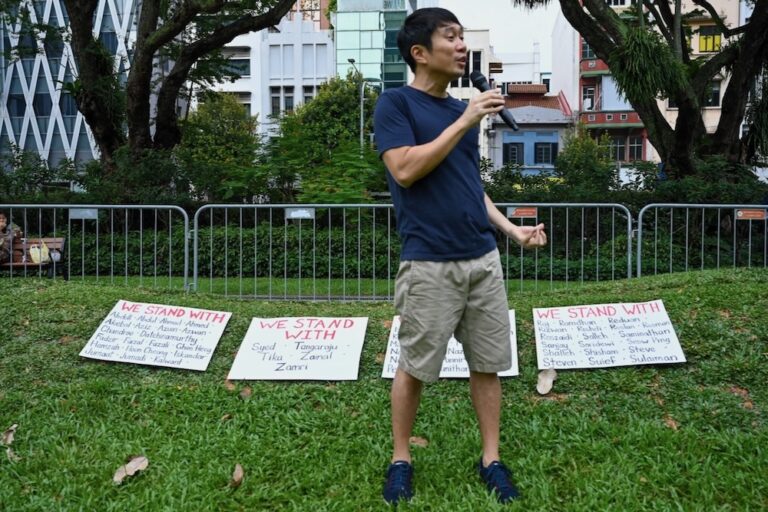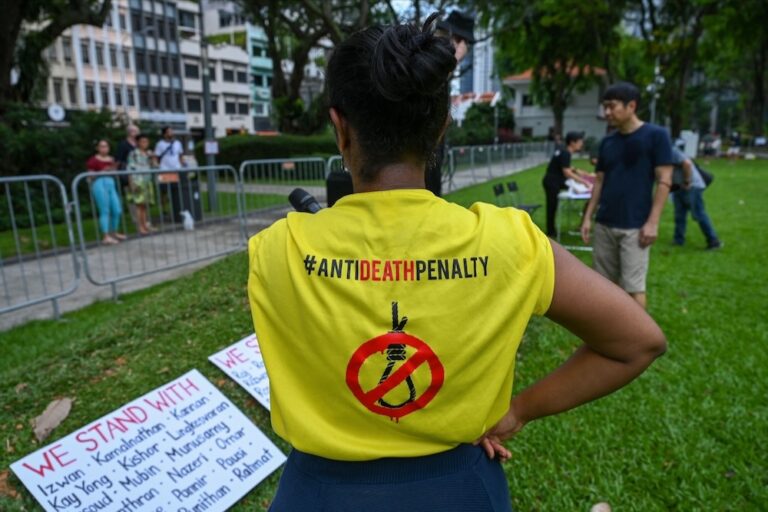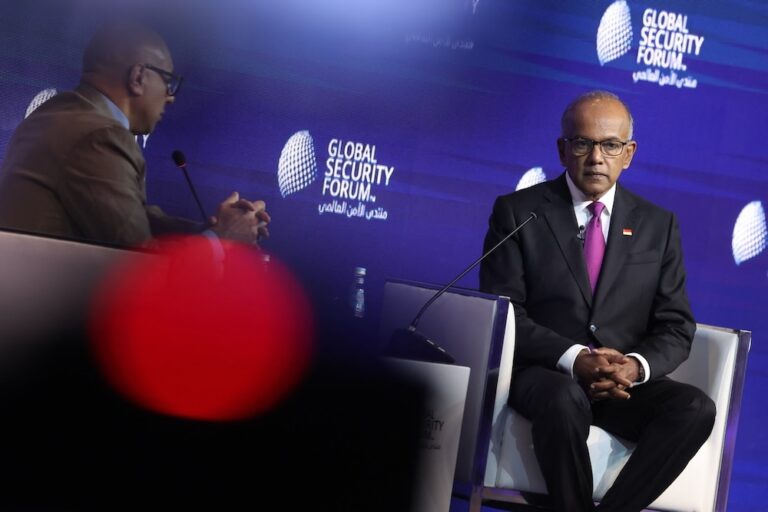(SEAPA/IFEX) – A state-owned newspaper has suspended the column of blogger Lee Kin Mun, following an information ministry official’s warning that “it is not the role of journalists or newspapers in Singapore to champion issues.” A 30 June 2006 article by Lee in the state-owned “Today” newspaper sarcastically discussed how many Singaporeans cannot make ends […]
(SEAPA/IFEX) – A state-owned newspaper has suspended the column of blogger Lee Kin Mun, following an information ministry official’s warning that “it is not the role of journalists or newspapers in Singapore to champion issues.”
A 30 June 2006 article by Lee in the state-owned “Today” newspaper sarcastically discussed how many Singaporeans cannot make ends meet despite all the “progress” trumpeted by government. The comments by Lee – better known to his readers as the blogger “Mr. Brown” – prompted Krishnasamy Bhavani, press secretary for the Ministry of Information, Communications and the Arts, to warn in a letter to “Today” editors that “it is not the role of journalists or newspapers in Singapore to champion issues, or campaign for or against the government.”
Engaging in the types of social commentary that “Mr. Brown” is known for, Bhavani said in her 3 July letter, disqualifies one as “a constructive critic.” He is, instead, “a partisan player in politics,” the press secretary said.
On 6 July, three days after Bhavani’s response to his article, Lee said in his blog ( http://www.mrbrown.com ) that he has been informed by the newspaper that his weekly column has been suspended.
Notwithstanding its standing as Southeast Asia’s richest and most economically advanced nation, Singapore has some of the strictest controls on free expression in the region. State-owned companies have a monopoly over the print and broadcast industries, the editors and managers of which submit to very rigid self-censorship. The country’s Films Act bans works that have political content and themes. Its defamation laws, notorious for their potential to bankrupt individuals and corporations, are ever hanging over the heads of writers, editors, publishers and political dissenters. In the last round of elections, Singapore officials warned bloggers and podcasters not to engage in political discourse.
Another Singaporean blog, Singapore Rebel ( http://www.singaporerebel.blogspot.com ) notes that “Lee is recognised as one of Singapore’s pioneer bloggers. As part of the traditional printed media’s attempt to engage the younger generation, Lee was given a regular column in “Today”. When the government banned political podcasting during the recent elections, Lee became the de facto spokesman for “responsible blogging”. The mainstream media quoted his slogan, “Prison got no broadband”, in discouraging political bloggers from confrontational online postings. Lee himself, however, tested the ban by uploading a sarcastic series of “persistently non-political podcasts” on his blog, one of which spoofed the state’s arrest of an opposition candidate.


